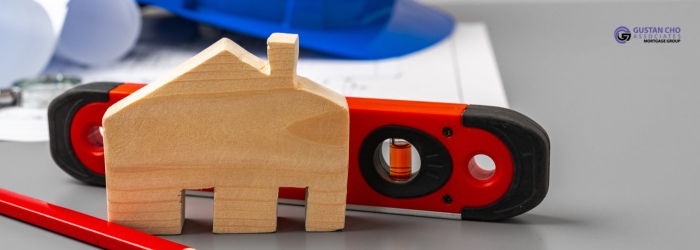The Pros and Cons of Buying a Fixer-Upper
Buying a house is a significant decision that can affect your finances and lifestyle for years. One type of property that some home buyers consider is a fixer-upper. These homes require substantial repairs or renovations, and they can be an appealing option for those who want to customize their living space or save money on the purchase price. However, consider the pros and cons of buying a fixer-upper before deciding.
Pros:
1. Lower purchase price
One of the primary advantages of buying a fixer-upper is the potential for a lower purchase price. Because these homes require significant repairs or renovations, they may be priced lower than other homes in the area. The Fixer-Upper can be an excellent opportunity for buyers willing to work to make the necessary repairs and upgrades.
2. Customization
When you buy a fixer-upper, you can customize the home to your preferences. You can choose the materials, finishes, and layout that best suit your needs and tastes. This can be a significant advantage for those who want a home tailored to their unique lifestyle and design preferences.
3. Investment potential
A fixer-upper can be a great investment opportunity if you put in the time and money to make the necessary repairs and upgrades. By improving the home’s condition and increasing its value, you can sell the property for a higher price.
Cons:
1. Additional expenses
One of the most significant drawbacks of buying a fixer-upper is the additional expenses that come with it. In addition to the purchase price, you will need to factor in the cost of repairs, renovations, and any unexpected issues that may arise. These expenses can quickly add up and may exceed your initial budget.
2. Time-consuming
Fixer-uppers require a significant amount of time and effort to renovate and repair. This can be a major disadvantage for those who are not handy or need more time or resources to complete the necessary work. It can also be a frustrating and stressful experience, especially if the repairs take longer than anticipated.
3. Uncertainty
When you buy a fixer-upper, there is always a level of uncertainty about the home’s condition and the repairs that will be required. This can significantly disadvantage those unfamiliar with home construction and renovation. Additionally, there is always a risk of discovering additional issues or hidden defects that may require other repairs and expenses.
Where to Find a Fixer-Upper
There are several ways to find fixer-uppers. One of the best ways is to work with a real estate agent specializing in this property type. These agents can help you find properties that are priced low because they need repairs and upgrades. You can also search online listings, attend auctions, or look for properties on the market for a long time.
Working with a Realtor
One of the most significant advantages of working with a Realtor when buying a fixer-upper is their expertise. A good Realtor can advise you on the pros and cons of different properties and provide recommendations for contractors and other professionals who can help you with the renovations. Additionally, they can help you navigate the potentially tricky process of negotiating the sale price and closing the deal.
However, it’s essential to choose a Realtor who has experience working with fixer-uppers specifically. Unique challenges come with renovating a property; not all Realtors will be well-equipped to handle them. Please look for someone with a track record of helping clients purchase and renovate fixer uppers.
Working with a Lender
Working with a lender can give you additional financial flexibility when buying a fixer-upper. In many cases, lenders offer specific renovation loans that allow buyers to borrow additional funds to cover the costs of repairs and upgrades. This can be a great way to ensure you have enough money to get the job done right without having to dip into your savings or take out a high-interest personal loan.
On the other hand, working with a lender can also be a bit complicated when buying a fixer-upper. You must be prepared to provide detailed documentation about your financial situation, including your income, assets, and debts. You may also need to provide a detailed plan outlining the repairs and upgrades you plan to make. This can be time-consuming and require you to work closely with your lender to ensure everything is in order.
How to Find a Fixer-Upper by Yourself
If you’re a DIY enthusiast and enjoy taking on home renovation projects, finding a fixer-upper to purchase can be an excellent investment. However, locating a property that fits your needs and budget can take time and effort. Here are some tips on how to find a fixer-upper by yourself.
1. Research Online
The Internet is a powerful tool when it comes to finding properties. Look for websites specializing in real estate listings, such as Zillow or Realtor.com. Use keywords such as “fixer-upper” or “handyman special” to narrow down your search. You can also search for properties in your desired location and filter the results to show only homes that need repairs.
2. Drive Around Your Desired Neighborhoods
Another way to find a fixer-upper is to drive around your desired neighborhoods. Look for homes that appear in disrepair or have overgrown lawns and unkempt yards. These properties may still need to be listed for sale, but the owners may be willing to sell if the price is right.
3. Attend Foreclosure Auctions
Foreclosure auctions can be a great way to find a fixer-upper at a discounted price. However, these auctions can be competitive, and you must be prepared to bid on the property you want. Before you come to an auction, please make sure you have a pre-approved loan, as you’ll need to pay the full amount upfront.
4. Talk to Contractors and Real Estate Investors
If you’re serious about finding a fixer-upper, you could talk to your area’s contractors and real estate investors. They may know of properties about to go on the market or can connect you with sellers looking to unload a property quickly. Networking can be a powerful tool for finding the right property.
5. Check with Local Government Agencies
Some local government agencies, such as housing authorities or community development departments, may have information on available properties.
Conclusion
Buying a fixer-upper can be an excellent option for those willing to work and have the resources to make the necessary repairs and upgrades. However, weighing the pros and cons carefully before deciding is essential. If you are considering a fixer-upper, work with a qualified lender, real estate agent, and home inspector to ensure that you are making an informed decision and getting the most value for your investment.
If you decide to buy a Fixer-Upper and need a renovation loan before you begin looking for a home during the process, we have vast experience working with buyers to get them ready to purchase their dream home. We can take you through the entire financing process for your home loan. We also can connect you to title companies/attorneys and real estate agents in your area that can help as needed. Call or text Ronda Butts at 407-460-7999 or email at ronda@gustancho.com for more information and further assistance. Ronda is an experienced, dually licensed real estate agent and mortgage originator. She has successfully guided many homeowners through obtaining a renovation home loan. She does not represent buyers or sellers but offers free consultation in 48 states at Gustan Cho by connecting homeowners, buyers, and sellers to the needed sources.






